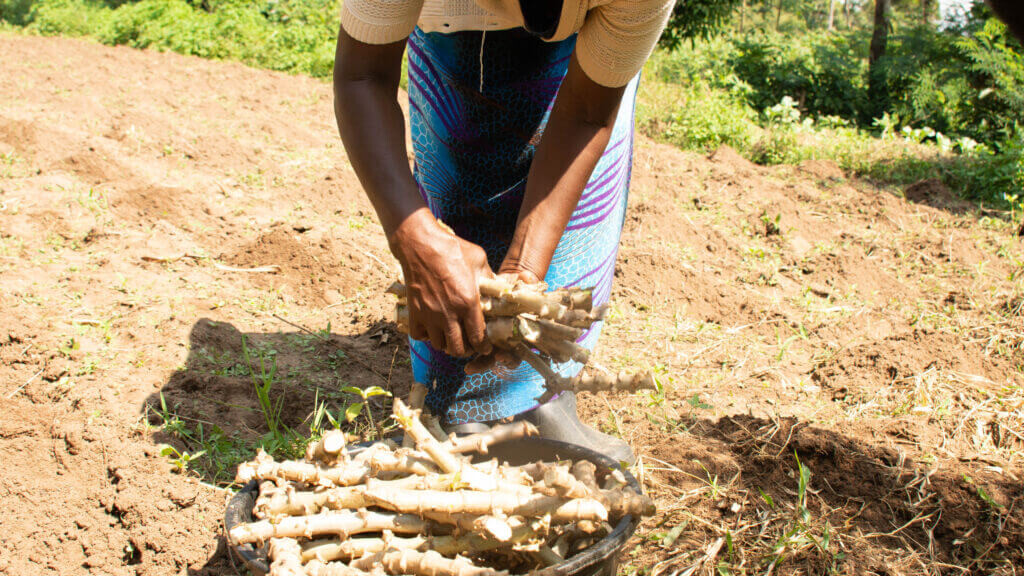The Ministry of Agriculture and Livestock Development (MoALD) in Kenya together with Self Help Africa will next week host the National Cassava Conference and Expo 2023 (NCCE) with emphasis on enhancing cassava production, productivity and value addition.
The conference, titled ‘Spearheading Innovation and Technology for the Cassava Sector,’ will take place from October 24 to 26, to aid in creating positive public awareness of cassava’s importance in food and nutrition security and socio-economic development across the country.
The European Union and other important development organizations are also helping to organize the conference.
Self Help Africa Country Director Jo Ryan said that the move is set to save Kenya monies that are spent annually to import staple food produce and products for consumption and industrial use that could be retained in the country for social and economic development projects.
“There is a need for consistent promotion across the country through cassava Forums, Trade Fairs and exhibitions events, considering its resilience to moisture stress, higher productivity per hectare over cereal crop farming and importance in food & nutrition security,” said Ryan in a statement released to newsrooms on Thursday.
Ryan went on to say that the expo will serve as a platform for local, regional, and international cassava value chain players to showcase their latest technologies, products, and services while also examining recent market trends and trade opportunities.
“It will also provide a platform that will facilitate the establishment of linkages that increase investment in the cassava value chain through a combination of government partnerships and private sector engagement, link and accelerate the development of affordable trading standards, procedures, protocols, and accreditations and identify areas of initial support to cassava actors,” he said.
According to the Ministry of Agriculture, Kenya currently produces 1 million tonnes of cassava, with 60% produced in the western region, 10% in the eastern region, and 30% on the coast.
“Food and nutrition security and adequate employment remain a significant challenge in Kenya despite its enormous natural and human resources,” said Mithika Linturi, CS Ministry of Agriculture.
However, the ministry estimates that Kenya has the capacity to produce more than 3 million tonnes per year.
The initiative to promote cassava as a climate-friendly and pest-resistant crop aims to identify tuber crops as an important source of food for humans and livestock, particularly as the effects of climate change become more apparent.
Cassava is high in dietary fiber, vitamin C, thiamin, folic acid, manganese, and potassium. After maize, wheat, and rice, it is the world’s fourth most important food crop.
In 2019, Kenya developed the National Roots and Tuber Strategy to guide the development and production of the crop for industrial use in particular.
It identifies tuber crops as an important source of food for humans and livestock, especially as climate change effects unfold.
Send us your story or opinion on: dailyexpressug@gmail.com. You can also follow Daily Express on WhatsApp for all the latest news and updates.


